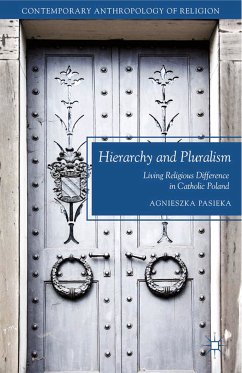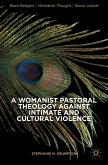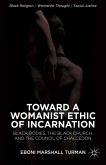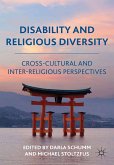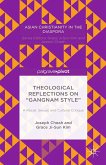Dieser Download kann aus rechtlichen Gründen nur mit Rechnungsadresse in A, B, BG, CY, CZ, D, DK, EW, E, FIN, F, GR, HR, H, IRL, I, LT, L, LR, M, NL, PL, P, R, S, SLO, SK ausgeliefert werden.
"Pasieka tries to strike a delicate balance between documenting the dominance of the Catholic Church and capturing evidence for pluralistic coexistence. I appreciated the author's enthusiasm to identify small possibilities for spaces in which minorities might be recognized. Ultimately, however, the book demonstrates the limits of Polish 'ecumenism,' showing that multireligious and multiethnic conviviality is fragile and ambiguous and perhaps more akin to a veneer in Rozstaje, where it can quickly turn toward intolerance and xenophobia." (Joanna Mishtal, American Anthropologist, Vol. 118 (4), December, 2016)
"Her book functions on two levels: as a fine-grained analysis of the religious practice of inhabitants of a multireligious area within a mostly religiously homogeneous country, and as a theoretical inquiry into the ways in which the exercise and expression of religious pluralism can nevertheless lend sup- port to 'naturalized' hierarchies between ethnic and religious groups. ... Hierarchy and Pluralism makes a valuable contribution to the anthropological literature on contemporary religion, practice theory, and postsocialism." (Marysia H. Galbrait, American Ethnologist, Vol. 43 (2), May 2016)
"Pasieka's book is accessible and even quite eloquent. It is one of those rare academic books that is actually a pleasure to read. ... I cannot recall another book aboutPoland from the past decade that has achieved this goal with such eloquence and with such solid argumentation." (Brian Porter-Szucs, H-Poland, networks.h-net.org, January, 2016)
"Pasieka stresses and illustrates the importance of studying religion through understanding how it is lived by people ... . she tells a convincing story which is always interesting and provides an excellent example of how to conduct productive fieldwork. I recommend the book without any hesitation whatsoever to students, academics, and lay persons with the slightest interest in learning about religions and how people live them. ... Hierarchy and Pluralism is one of the best monographs I have ever read." (Eileen Barker, Rascee, Vol. 8 (1), 2015)

